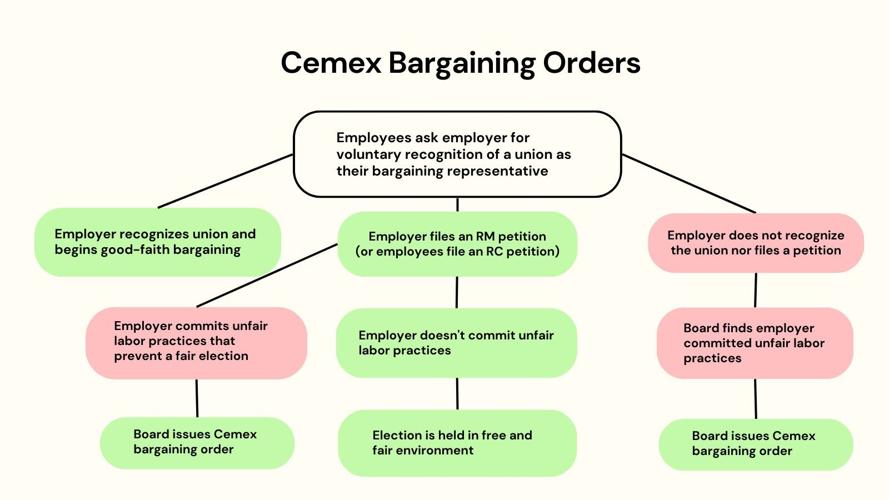The National Labor Relations Board isn’t holding back in making drastic changes to long-standing precedent to make unionizing in American workplaces easier and more certain, giving unions some extra reasons to celebrate this Labor Day.
Last month, the NLRB issued a decision touted by the federal agency to be “a new framework for determining when employers are required to bargain with unions without a representation election. The new framework will both effectuate employees’ right to bargain through representatives of their own choosing and improve the fairness and integrity of board-conducted elections.”
Previously, the employer could voluntarily recognize a union if at least 50% of workers signed authorization cards or a petition. In the alternative, if at least 30% of workers in a bargaining unit signed authorization cards or a petition seeking a union, the union could petition the NLRB to hold a secret ballot election. If the union won the election, the union would be certified by the NLRB and the employer had to bargain with the union.
Now, the burden is largely off the union.
According to a news release and the decision, employers must immediately bargain with unions when requested by the union representative, or file an immediate petition for an election known as an “RM petition.”
Unless the RM petition is filed, based on the decision, the company must recognize the union if at least half sign union cards or a petition, or potentially, based merely on a claim that there is a majority of support. The union is not required to seek an election.
If an RM petition is filed within two weeks by the employer, there will be a secret ballot election.

The NLRB put out this flowchart on Cemex bargaining orders.NLRB
But under the new rules, according to the board’s news release, “(I)f an employer who seeks an election commits any unfair labor practice that would require setting aside the election, the petition will be dismissed, and — rather than re-running the election — the board will order the employer to recognize and bargain with the union.”
Previously, only certain and most egregious unfair labor practices during the election would mandate the issuance of bargaining orders.
And because everything will move quickly and it’s easy to trip up, every private-sector employer needs to be ready.
As stated by the board, “(T)he revised framework represents an effort to better effectuate employees’ right to bargain through their chosen representative, while acknowledging that employers have the option to invoke the statutory provision allowing them to pursue a board election. When employers pursue this option, the new standard will promote a fair election environment by more effectively disincentivizing employers from committing unfair labor practices.”
The board’s chairman stated, “The Cemex decision reaffirms that elections are not the only appropriate path for seeking union representation, while also ensuring that, when elections take place, they occur in a fair election environment. Under Cemex, an employer is free to use the board’s election procedure, but is never free to abuse it — it’s as simple as that.”
In the Cemex case, the board required that Cemex immediately recognize and bargain with the union based on its new standard after it found that the company allegedly committed more than 20 instances of “objectionable and unlawful misconduct during the critical period between the filing of the election petition and the election.”
Virginia remains a “right to work” state, which means that Virginia workers have a right to work without being required to join a union as a condition of employment.
This doesn’t mean that a union isn’t coming to your workplace. The NLRB will now issue bargaining orders on the ready – so employers need to be ready.
The NLRB enforces the National Labor Relations Act, which is a federal law passed in 1935 that grants employees working for the private sector the right to form or join unions; engage in protected, concerted activities to address working conditions; or refrain from engaging in these activities. It applies only to private-sector employers, with limited exceptions, including manufacturers, retailers, private universities and health care facilities. Workers employed by federal, state or local governments are exempt from the law.
More information can be found at NLRB.gov.
